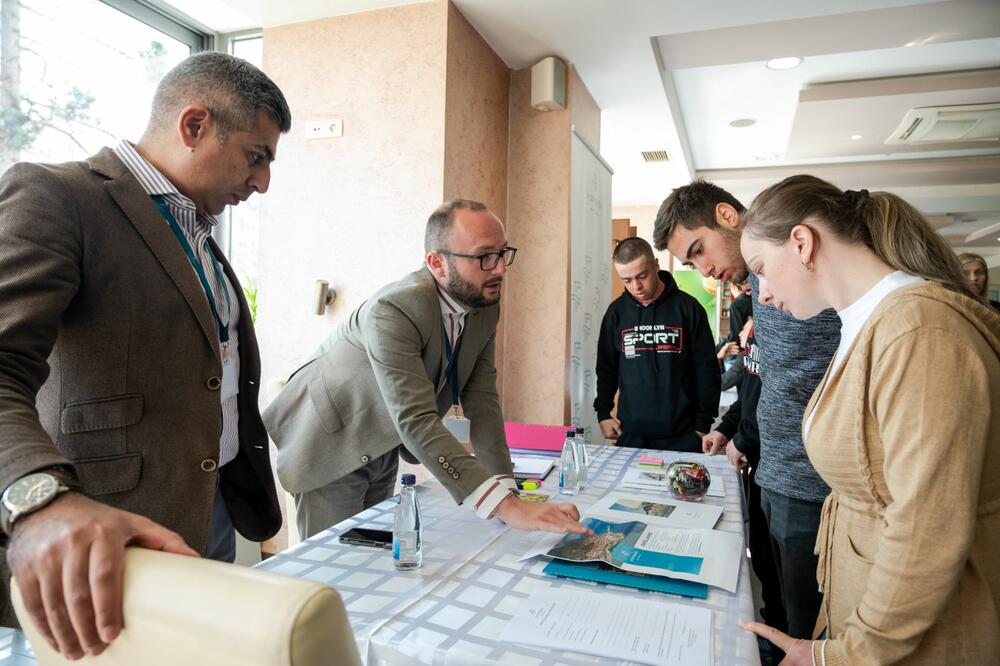Understanding the Job Market in Montenegro
The job market in Montenegro is diverse, with opportunities in various sectors. The tourism industry, for instance, is a major employer due to the country's popularity as a tourist destination.
What are the most popular job industries in Montenegro?
The most popular job industries in Montenegro include tourism and hospitality, information technology, finance and banking, construction, and manufacturing. These industries offer a range of job opportunities for both locals and expatriates in the country. Other significant sectors include agriculture, manufacturing, and services (including IT). However, it's important to note that the job market is competitive, and fluency in the local language, Montenegrin, can be a significant advantage.

Additionally, the economic situation in Montenegro can influence job availability. Like many countries, Montenegro has been affected by economic fluctuations and global events, which can impact the job market. Therefore, staying informed about the country's economic situation can help you identify potential job opportunities and understand the challenges you may face.
Job Opportunities for English Speakers
While fluency in Montenegrin is advantageous, there are job opportunities for English speakers in Montenegro. These are often in sectors such as tourism, education (particularly English teaching), and international business. Additionally, some international companies operating in Montenegro may use English as their working language.
However, competition for these jobs can be high, and employers may require additional qualifications or experience. Therefore, it's crucial to have a strong CV and cover letter that highlight your skills and experiences relevant to the job you're applying for.
Legal Requirements for Working in Montenegro
Before you can start working in Montenegro, you need to meet certain legal requirements. This typically involves obtaining a work permit and a residence permit. The process can be complex and time-consuming, so it's important to start early and be prepared for potential challenges.
Work permits are usually tied to a specific job, meaning you need to have a job offer before you can apply for a permit. The employer often initiates the application process. However, there are exceptions for certain categories of workers, such as self-employed individuals and entrepreneurs. Obtaining a work visa is required for those who wish to work in Montenegro. The applicant must submit the necessary documents in person at the Montenegrin Embassy in their country of permanent residence, no earlier than one month before the planned trip. It usually takes about 10-14 days for the work visa application to be processed. For businesses looking to expand to Montenegro, outsourcing services and personal work permits are available through companies like Horizons, which can help hire and pay talents from around the world.

Residence Permit
To live and work in Montenegro, you'll also need a residence permit. This is usually granted based on employment, but can also be obtained through other means, such as family reunification or study. The application process involves providing various documents, such as proof of employment, proof of accommodation, and health insurance.
It's important to note that the requirements for work and residence permits can change, and the process can vary depending on your nationality and other factors. Therefore, it's recommended to consult with an immigration expert or the Montenegrin embassy in your home country for the most accurate and up-to-date information.
Job Hunting Strategies
Finding a job in Montenegro requires a strategic approach. Networking can be particularly effective, as many jobs are filled through personal connections. Attending local events, joining professional associations, and connecting with people in your industry can help you learn about job opportunities and make valuable contacts.
Online job portals are another useful resource for finding a position for you. Websites such as zaposli.me, careerjet.me, and radnik.me list job vacancies in various sectors and can be a good starting point for your job search. Additionally, LinkedIn can be useful for finding job opportunities and connecting with professionals in Montenegro.
Working Culture in Montenegro
Understanding the working culture in Montenegro can help you adapt to your new job and work effectively with your colleagues. Montenegrins are known for their hospitality and friendliness, and these qualities are often reflected in the workplace.
However, the working culture can vary depending on the industry and the specific company. Generally, the culture is laid back and with no rush, which might come as a surprise (positive or negative) to you. Slow-paced tempo sometimes can take certain work to be done longer than necessary.
Typically, the working week in Montenegro is 40 hours, spread over five days. However, working hours can be longer in certain sectors, such as tourism.
Business Etiquette
Business etiquette in Montenegro is generally formal. However, relationship-building is also important, and meetings often begin with some small talk. Quite often, meetings are conducted in restaurants and bars, since it is rooted in Montenegrin culture. When greeting colleagues or business partners, a firm handshake is the norm.
Finally, it's important to respect the local customs and traditions. Montenegro is a diverse country with a rich cultural heritage, and showing an appreciation for this can help you build strong relationships with your colleagues and integrate into the local community.
Health Insurance
If you are planning to work in Montenegro, it is important to know that health insurance is a requirement for foreign nationals applying for a Montenegrin employment permit. This means that you need to provide proof of health insurance when submitting your application along with other necessary documents such as a valid passport and police background check. It is also recommended to read reviews of foreigners already employed in the country to have an idea about the health insurance policies and other benefits provided by the employer.
Bonus video:





